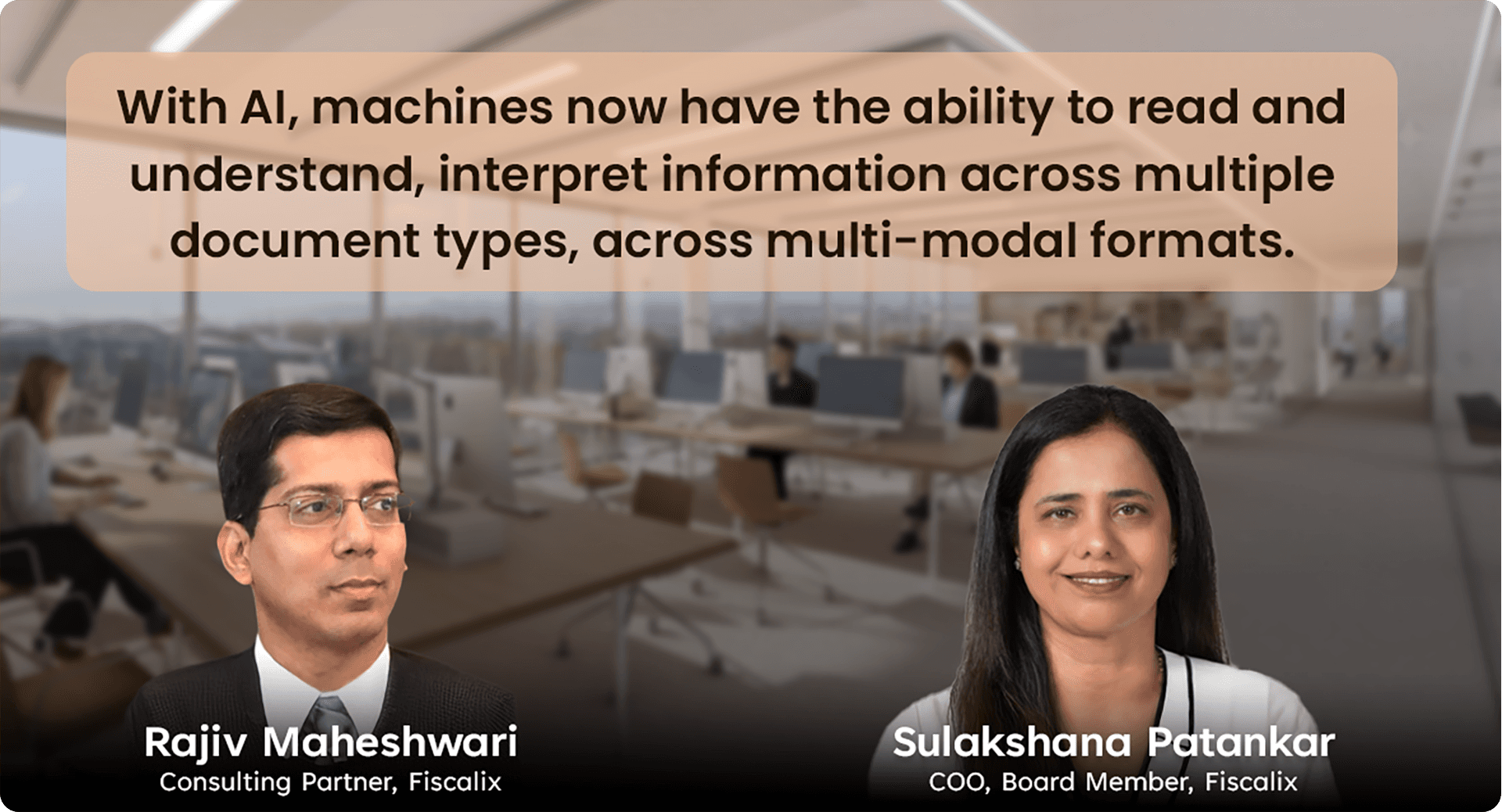Nov 29, 2024
4 Min

Fiscalix Team

Let’s face it—reconciling accounting data is a headache. You’ve got invoices, contracts, bank statements, and all sorts of other documents coming in all kinds of formats. Trying to match and verify all that info manually? It’s time-consuming, and mistakes happen.
But here's the good news: AI is stepping in to make this whole process a lot easier and way more accurate. By understanding data in all sorts of shapes and sizes, AI is changing the way companies handle accounting reconciliation, and it’s saving tons of time and effort in the process.
The Challenges of Accounting Reconciliation
When it comes to reconciling data, there are three main sources of info:
Books of Accounts – This is the clean, structured data in your general ledger (think numbers and totals).
Transactional Documents – These are things like invoices, contracts, and bank statements, which are semi-organized but still messy.
Master Documents – These include policies and agreements that are mostly unstructured, like long text documents.
Here’s the problem: all these documents come in different formats. The invoice number on one might not match the one on another, and the descriptions or codes might be totally different. Traditional systems struggle to line everything up, and that’s where things go wrong.

How AI Makes Reconciliation a Breeze
This is where AI comes in. AI is way better at handling this mess than old-school systems. While those systems just match numbers, AI can actually "read" and understand the meaning of data across all types of documents. Here’s how AI helps:
Extracting Data: AI can pull out relevant info from all kinds of documents—whether it’s neatly organized or a bit of a mess.
Making the Right Matches: Even if numbers don’t line up perfectly (say, invoice numbers don’t match), AI can still figure out how to connect the dots using smart algorithms.
Spotting Mistakes: AI is great at catching things that don’t look right—like discrepancies or errors—and flags them for further review, making sure nothing slips through the cracks.
Thanks to AI, reconciliation accuracy has jumped from about 70% to over 95%, which is a huge improvement.
"We've been able to achieve over 95% accuracy in our reconciliation processes by combining the power of AI with human oversight." - Rajiv Maheshwari
The Road to Change
Now, switching to AI might sound intimidating at first. But once companies start using it, the benefits become clear. With AI handling most of the heavy lifting, finance teams can save a lot of time, make fewer mistakes, and have more confidence in their reconciliation process.
The human touch is still important—people review the AI's work to make sure everything’s spot on. Together, AI and human expertise make a powerful team. AI handles the repetitive tasks, leaving humans to focus on the bigger, more strategic decisions.
"AI is not about replacing human intelligence, but about augmenting it. By working in tandem with these powerful tools, we can revolutionize the way we approach reconciliation and unlock new levels of efficiency and insight." - Sulakshana Patankar
Key Benefits of AI in Accounting Reconciliation
Here’s why AI is a game-changer:
Time Savings: AI can process huge amounts of data way faster than a person can, freeing up time for more important work.
Better Accuracy: With AI handling the data matching, there are fewer errors and way more reliable results.
Transparency: AI makes it easy to track and check every step in the reconciliation process, which is super important for audits and compliance.
Conclusion
AI isn’t just about fixing mistakes in accounting reconciliation—it’s about making the whole process faster, smarter, and more accurate. By letting AI do the heavy lifting, finance teams can spend more time making smart decisions and less time getting lost in data. So, by adopting AI, companies can save time, cut down on errors, and improve the transparency of their financial operations.



